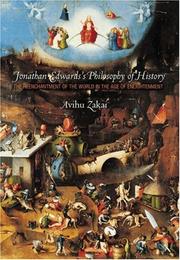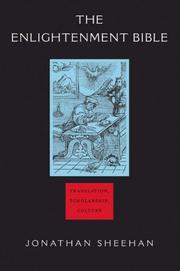| Listing 1 - 4 of 4 |
Sort by
|
Book
ISBN: 1526128810 9781526128812 9781526128829 9781526128805 Year: 2020 Publisher: Manchester, UK
Abstract | Keywords | Export | Availability | Bookmark
 Loading...
Loading...Choose an application
- Reference Manager
- EndNote
- RefWorks (Direct export to RefWorks)
"This volume addresses a perennial question in the history of English religion: to what extent did the late-medieval dissenters known as lollards influence the Protestant Reformation? To answer this question, it examines the afterlife of the lollards as shaped by sixteenth-century evangelicals, especially John Foxe, and their seventeenth-century successors. Foxe's Acts and Monuments (1563) is second only to the Bible as the most influential book in early modern England, a juggernaut in Tudor historical writing that solidified the emergent national church. His reorientation of the lollards from heretics and traitors to martyrs and model subjects portrayed these medieval dissenters as Protestants' ideological forebears. This volume offers a strong corrective to the traditional interpretation that Foxe heavily edited radical Lollard views to bring them in line with a mainstream monarchical church. Instead, it shows that a wealth of non-mainstream material is present in Foxe's text that allowed seventeenth-century religious radicals to appropriate the lollards as historical validation of their own theological and political positions, including the act of separation.Lollards in the English Reformation traces the ensuing struggle for the Lollard legacy between conformists and nonconformists, arguing that the same lollards that Foxe used to bolster the fledgling English church in the sixteenth century would play a role in its fragmentation in the seventeenth. This fresh and exciting research promises to shake up our assumptions about Foxe, the levels of radicalism in post-Reformation Protestantism and the significance of historical precedent in post-Reformation polemic." -- Back cover. This book examines the afterlife of the lollard movement, demonstrating how it was shaped and used by evangelicals and seventeenth-century Protestants. It focuses on the work of John Foxe, whose influential Acts and Monuments (1563) reoriented the lollards from heretics and traitors to martyrs and model subjects, portraying them as Protestants' ideological forebears. It is a scholarly mainstay that Foxe edited radical lollard views to bring them in line with a mainstream monarchical church. But this book offers a strong corrective to the argument, revealing that the subversive material present in Foxe's text allowed seventeenth-century religious radicals to appropriate the lollards as historical validation of their own theological and political positions. The book argues that the same lollards who were used to strengthen the English church in the sixteenth century would play a role in its fragmentation in the seventeenth..
Lollards. --- Reformation --- Early movements --- Influence. --- Foxe, John, --- England. --- Angleterre --- England --- Religion --- Histoire religieuse --- Church history --- Early Modern Britain. --- History. --- John Bale. --- John Foxe. --- John Wycliff. --- Radicalism. --- Reformation England. --- Religious Culture. --- William Tyndale. --- Lollards --- Sacraments --- Persecution --- Historiography --- Sermons --- History and criticism --- History of doctrines --- History
Book
ISBN: 0228015863 0228015855 Year: 2022 Publisher: Montreal, Quebec : McGill-Queen's University Press,
Abstract | Keywords | Export | Availability | Bookmark
 Loading...
Loading...Choose an application
- Reference Manager
- EndNote
- RefWorks (Direct export to RefWorks)
It was neither the civilization of Renaissance Italy nor the printing press that created the modern world. Instead, it was reading. Through historical analysis and readings of Petrarch, Bruni, Valla, Reuchlin, Erasmus, Foxe and Milton, The Communion of the Book explores how literacy produced modern values, and how digital media threaten those values.
Books and reading --- Civilization, Modern. --- Humanism --- Literacy --- Reading. --- History. --- Adrian Johns. --- Aeneid. --- Benedict Anderson. --- Book of Martyrs. --- Elizabeth Eisenstein. --- English Levellers. --- English Revolution. --- Erasmus. --- Euripides. --- Greek tragedy. --- Harold Innis. --- John Foxe. --- John Lilburne. --- Joseph Henrich. --- Leonardo Bruni. --- Lorenzo Valla. --- Marshall McLuhan. --- Paradise Regained. --- Petrarch. --- Renaissance. --- Roman history. --- Samson Agonistes. --- Stanislas Deheane. --- Stationers Company. --- book history. --- classics. --- common law. --- continental jurisprudence. --- continuous reading. --- democracy. --- digital cognition. --- humanist historiography. --- humanist printers. --- incunabula. --- indexical reading. --- literacy rates. --- logos. --- media change. --- metaphor. --- metonymy. --- modernity. --- monopolies of knowledge. --- papyrus codex. --- papyrus scroll. --- parchment codex. --- philoglogy. --- print nations. --- reader neurology. --- reading history. --- sacramental theology. --- science printing. --- sermo.

ISBN: 0691096546 0691144303 1400825601 9786612087745 1282087746 9781400825608 9780691096544 Year: 2003
Abstract | Keywords | Export | Availability | Bookmark
 Loading...
Loading...Choose an application
- Reference Manager
- EndNote
- RefWorks (Direct export to RefWorks)
Avihu Zakai analyzes Jonathan Edwards's redemptive mode of historical thought in the context of the Enlightenment. As theologian and philosopher, Edwards has long been a towering figure in American intellectual history. Nevertheless, and despite Edwards's intense engagement with the nature of time and the meaning of history, there has been no serious attempt to explore his philosophy of history. Offering the first such exploration, Zakai considers Edwards's historical thought as a reaction, in part, to the varieties of Enlightenment historical narratives and their growing disregard for theistic considerations. Zakai analyzes the ideological origins of Edwards's insistence that the process of history depends solely on God's redemptive activity in time as manifested in a series of revivals throughout history, reading this doctrine as an answer to the threat posed to the Christian theological teleology of history by the early modern emergence of a secular conception of history and the modern legitimation of historical time. In response to the Enlightenment refashioning of secular, historical time and its growing emphasis on human agency, Edwards strove to re-establish God's preeminence within the order of time. Against the de-Christianization of history and removal of divine power from the historical process, he sought to re-enthrone God as the author and lord of history--and thus to re-enchant the historical world. Placing Edwards's historical thought in its broadest context, this book will be welcomed by those who study early modern history, American history, or religious culture and experience in America.
Enlightenment --- Lumières (Philosophie) --- Lumières [Siècle des ] --- Siècle des Lumières --- Verlichting (Filosofie) --- Enlightenment. --- History --- Aufklärung --- Eighteenth century --- Philosophy, Modern --- Rationalism --- History, Modern --- Philosophy. --- Philosophy --- Edwards, Jonathan, --- أدوردس، يوناثان --- Edwards, Jonathan --- Contributions in history of philosophy --- Antichrist. --- Apostasy. --- Arianism. --- Arminianism. --- Calvinism. --- Christ. --- Christian Church. --- Christian ethics. --- Christian revival. --- Christian theology. --- Christian. --- Christianity. --- Christocentric. --- Christology. --- Church Fathers. --- Constantine the Great and Christianity. --- Consummation. --- Contingency (philosophy). --- Conversion of the Jews. --- Cotton Mather. --- Deism. --- Deity. --- Disenchantment. --- Divination. --- Divine grace. --- Divine providence. --- Doctrine. --- Dynamism (metaphysics). --- Early modern period. --- Eschatology. --- Ethics. --- First Great Awakening. --- George Whitefield. --- God. --- Good and evil. --- Great Awakening. --- Great chain of being. --- H. Richard Niebuhr. --- Herbert Butterfield. --- Heresy. --- Historical criticism. --- Historiography. --- Ideology. --- Illustration. --- Immanence. --- Infidel. --- John Calvin. --- John Foxe. --- Justification (theology). --- Major religious groups. --- Manifestation of God. --- Materialism. --- Mechanical philosophy. --- Methodism. --- Millennialism. --- Miracle. --- Morality. --- Natural philosophy. --- Natural religion. --- Natural theology. --- Old Testament. --- Omnipotence. --- Omniscience. --- Orthodoxy. --- Pastor. --- Perry Miller. --- Philip Melanchthon. --- Philosopher. --- Philosophical theology. --- Philosophy of history. --- Pietism. --- Piety. --- Plan of salvation (Latter Day Saints). --- Postmillennialism. --- Potentiality and actuality. --- Prophecy. --- Protestantism. --- Puritans. --- Religion. --- Religious conversion. --- Religious experience. --- Religious text. --- Sacred history. --- Salvation History. --- Satan. --- Second Coming. --- Second Great Awakening. --- Secularization. --- Sermon. --- Sinners in the Hands of an Angry God. --- Socinianism. --- Teleology. --- The City of God (book). --- Theology of the Cross. --- Theology. --- Theory. --- Universal history. --- World. --- Writing.

ISBN: 9780691130699 0691130698 0691118876 1400847796 9781400847792 9780691118871 Year: 2005 Publisher: Princeton: Princeton university press,
Abstract | Keywords | Export | Availability | Bookmark
 Loading...
Loading...Choose an application
- Reference Manager
- EndNote
- RefWorks (Direct export to RefWorks)
How did the Bible survive the Enlightenment? In this book, Jonathan Sheehan shows how Protestant translators and scholars in the eighteenth century transformed the Bible from a book justified by theology to one justified by culture. In doing so, the Bible was made into the cornerstone of Western heritage and invested with meaning, authority, and significance even for a secular age. The Enlightenment Bible offers a new history of the Bible in the century of its greatest crisis and, in turn, a new vision of this century and its effects on religion. Although the Enlightenment has long symbolized the corrosive effects of modernity on religion, Sheehan shows how the Bible survived, and even thrived in this cradle of ostensible secularization. Indeed, in eighteenth-century Protestant Europe, biblical scholarship and translation became more vigorous and culturally significant than at any time since the Reformation. From across the theological spectrum, European scholars--especially German and English--exerted tremendous energies to rejuvenate the Bible, reinterpret its meaning, and reinvest it with new authority. Poets, pedagogues, philosophers, literary critics, philologists, and historians together built a post-theological Bible, a monument for a new religious era. These literati forged the Bible into a cultural text, transforming the theological core of the Judeo-Christian tradition. In the end, the Enlightenment gave the Bible the power to endure the corrosive effects of modernity, not as a theological text but as the foundation of Western culture.
Enlightenment.
---
Siècle des lumières
---
Bible.
---
History.
---
-Enlightenment.
---
Aufklärung
---
Eighteenth century
---
Philosophy, Modern
---
Rationalism
---
Bible
---
History
---
Enlightenment
---
#GGSB: Exegese
---
22.06 <09>
---
Bijbel: exegese--
| Listing 1 - 4 of 4 |
Sort by
|

 Search
Search Feedback
Feedback About UniCat
About UniCat  Help
Help News
News